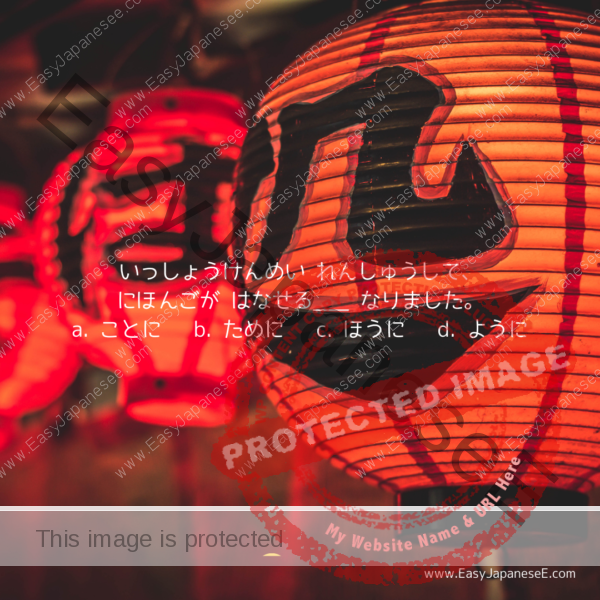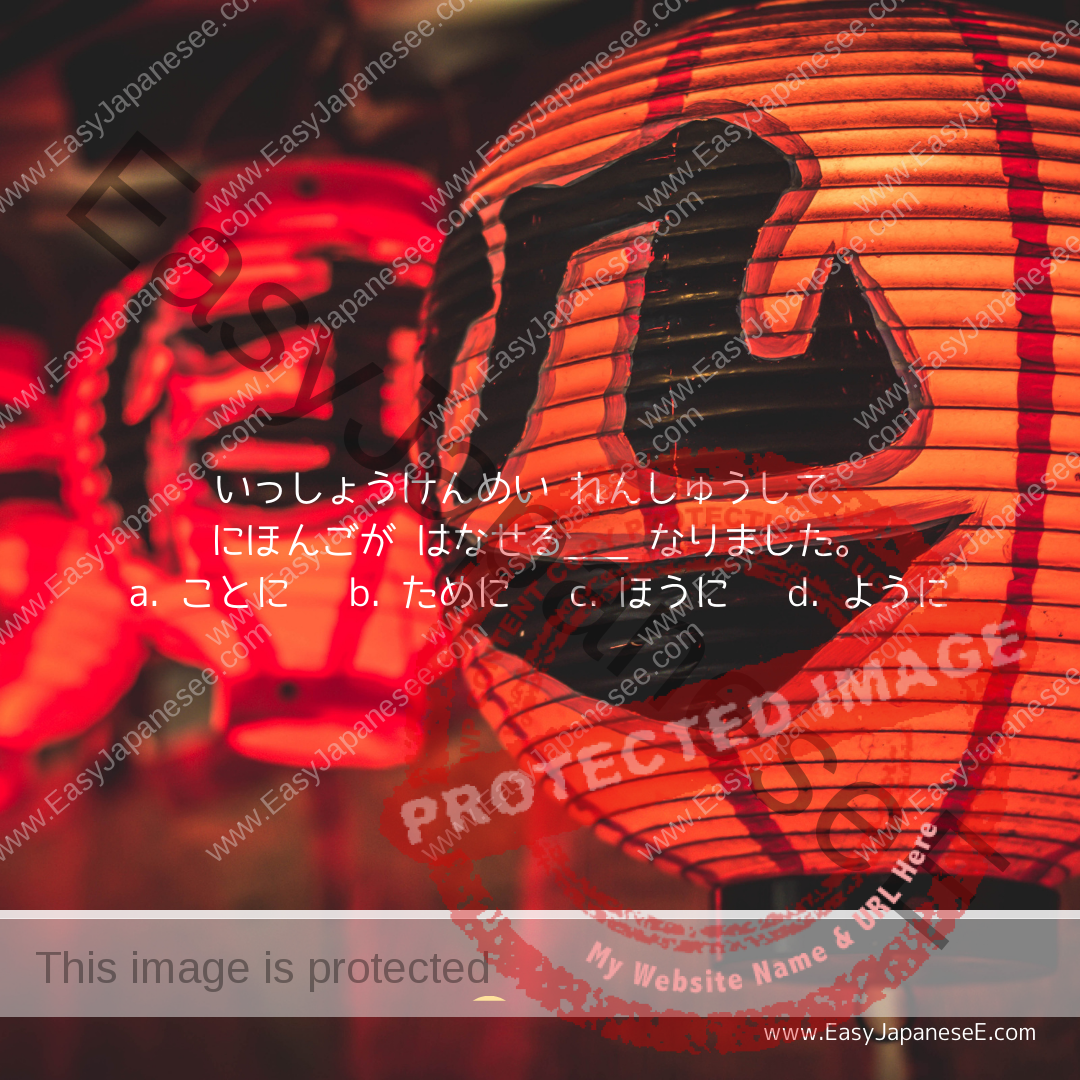
いっしょうけんめい れんしゅうして、にほんごが はなせる_ なりました。
a. ことに b. ために c. ほうに d. ように
The intended meaning is “I practised very hard and I have learned to (be able to) speak Japanese.
[potential (form) verb] + ようになる is often used to describe an acquisition of a skill.
けが人は また 歩(ある)ける ようになった。
The injured person has learned to walk again.なっとうが きらいでしたが、食(た)べられるように なりました。
I didn’t like natto but I have learned to eat it.むすこは もうすぐ ひとりで じてんしゃに のれるように なるだろう。
Our son will soon learn to ride a bicycle alone.スケートが できる ように なりたい。
I want to learn to (be able to) skate.ピアノが ひけるように れんしゅうしている。
I am practising hard to learn to play the piano.
If a potential (form) verb is NOT used, ようになる describes change of behaviour, like “to start to …”
まいにち 5キロ あるく ように なった。
I have started to walk 5kms every day.むすこが ビールを のむ ように なった。
Our son has started to drink beer.はるには ツバメが くる ように なった。
Swallows began to come to our house in spring.じぶんから べんきょうする ように なってほしい。
I want him to start to study by himself.そのうち ふりがなが いらないように なるだろう。
≒そのうち ふりがなが いらなくなるだろう。
Soon, you will no longer need Furigana.
For more study material for JLPT N4 exam, please visit JLPT N4 Grammar and Vocab and JLPT N4 Kanji pages.
EasyJapaneseE’s Basic Grammar Exercise Modules
Following short modules are available for subscription! Click the name of a module for more information.

